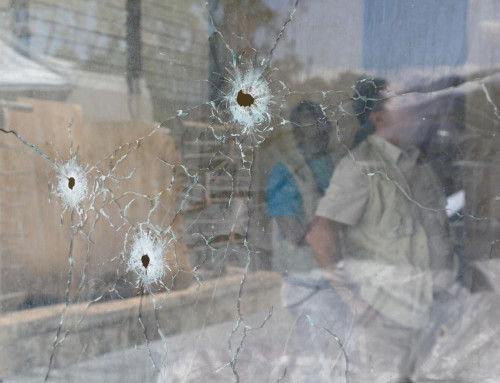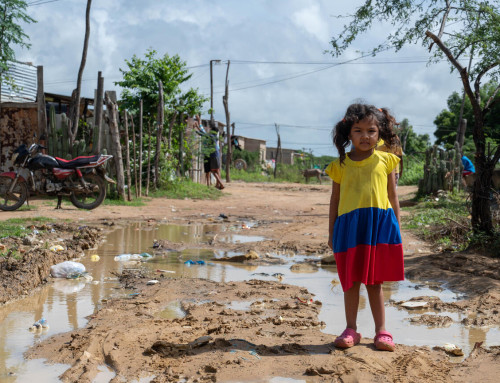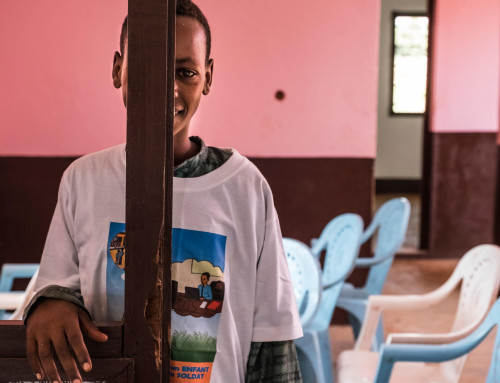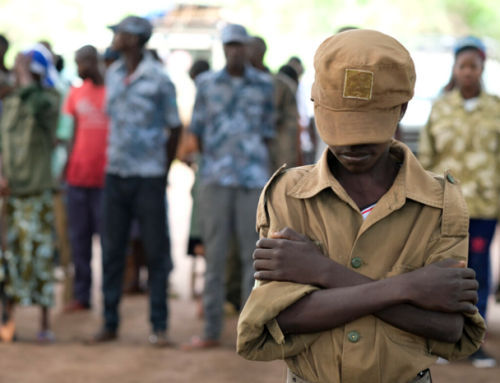The steady decrease in grave violations against children in Colombia since the signature of the Peace Agreement in 2016 to 383 incidents verified is encouraging, but children nevertheless keep suffering from the impact of hostilities highlights a new report of the Secretary-General on Children and Armed Conflict in the country published today.
The report covers 1 July 2019 to 30 June 2021, a period in which Colombia continued to make progress in the implementation of the Final Agreement for Ending the Conflict and Building a Stable and Lasting Peace between the Government of Colombia and the FARC-EP.
“The decrease in violations is welcome. But we must remain cautious as the period also coincided with the outbreak of the COVID-19 pandemic which had an impact on the United Nations’ ability to verify violations. And the fact that, despite an overall decrease in grave violations, children are still being used and abused by parties to conflict, remains concerning,” said the Special Representative of the Secretary-General for Children and Armed Conflict, Virginia Gamba.
Girls have been particularly affected by grave violations in Colombia, accounting for a third (109) of all children (330) impacted, which is more than the average for countries on the CAAC agenda (23%).
The most prominent violation was by far the recruitment and use of children by armed groups, including dissident FARC-EP groups which were the main perpetrators as well as the Ejército de Liberación Nacional (ELN), with 220 children affected. The linkages between displacement and grave violations against children were also concerning, especially threats of child recruitment forcing families to move. This was most common in Arauca and Meta Departments. The Special Representative calls on all armed groups to immediately stop the recruitment and use of children, and release all children present in their ranks so that they can return to their communities and benefit from reintegration programmes. She further reminds that boys and girls associated with armed groups and forces should be considered primarily as victims.
The killing and maiming of 118 children was also verified during the reporting period, mainly as a result of gunshot, anti-personnel landmines and unexploded ordnance, or of aerial attacks. The Special Representative emphasizes that Colombia remains one of the countries most affected by the presence of explosive remnants of war; she calls on armed groups to stop the use of indiscriminate explosive devices and encourages the Government to scale up its demining and mine risk education activities across the country.
“Additionally, all parties should take all necessary measures to protect children during military operations and activities, in line with international humanitarian law, in particular the principle of precaution,” the Special Representative added. “Armed confrontations in areas where civilians and children are present should be planned and executed with the principles of distinction, proportionality and precautions and to ensure the protection of non-combatants”.”
Other grave violations were verified, including rape and other forms of sexual violence affecting 14 children, though actual numbers are likely higher as this specific violation is known for being underreported for fear of stigma, retaliation, and lack of services for survivors.
Progress for Boys and Girls Affected by Conflict
During the reporting period, the reintegration of children released from armed groups continued, with 323 children enrolled in specialized programmes according to the Colombian Family Welfare Institute. Furthermore, the Office of the High Commissioner for Peace recognized an additional 232 former FARC-EP combatants as having been children at the time of the laying down of weapons and provided them with reintegration services.
The Special Representative further welcomes the progress made on accountability by the Government and transitional justice mechanisms, particularly the Special Jurisdiction for Peace, including on cases of sexual violence and recruitment and use of children and other grave violations, as well as additional and new policy measures adopted to strengthen the protection of children and the prevention of violations.
“Prevention measures, including a new policy to prevent the recruitment and use of children and sexual violence against children, as well as a national strategy focusing on highlighting the risks of recruitment are welcomed steps in the right direction to reinforce the prevention of grave violations and strengthen the protection of boys and girls against them,” said Virginia Gamba. “My office and our United Nations colleagues on the ground remain available to support the Colombian authorities in the implementation of such prevention measures.”
Click here to read the full report
###
Grave violations against children between 1 July 2019 and 30 June 2021
383 grave violations against 330 children
Recruitment and use: 220 children
Killing and maiming: 118 children
Rape and other forms of sexual violence: 14 children
Abductions: 10 children
Attacks on schools and hospitals: 8 incidents (6 schools, 2 hospitals)
Denial of humanitarian access: 13 incidents






